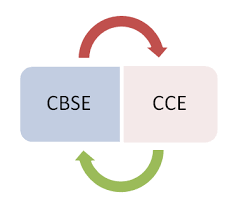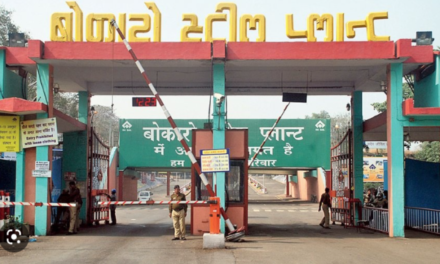What is CCE? CCE stands for Continuous and Comprehensive Evaluation. It is the latest evaluation framework implemented by the CBSE schools in India under the guidelines issued by Mr. Kapil Sibal, Union Minister of Ministry of Human Resource Development. The CCE was implemented in 2010. Being very new, it poses more questions than answers them. But that is true of anything new. So before we go into why CCE, let’s see what is CCE.
Continuous
The evaluaion of the child has to be continuous and are the not discrete. Earlier, the assessments were done twice or thrice a year but now it has to be an ongoing process. The idea is to evaluate the child while she is learning. The tests should be diagnostic in nature. The results of the tests should be used to assess what topics the child has not understood, reteach them, and then assess them again.
Comprehensive
The child must be assessed comprehensively, i.e. in both scholastic and co-scholastic subjects. Scholastic subjects are the uual science, maths, social studies, language, etc. while co-scolastic includes Art, Music, Dance, Games, etc. We have grown up believing that to excel in life you need to excel in academics. How many of our classmates can we remember pursuing Dance or Games as career? Very few. That is the average Indian psyche and that is what CCE intends to dispel. CBSE believes that the scholastic and co-scholastic parameters are equally important. A child who is average in academics but excellent in other fields need not be termed a failure. So CCE lays equal emphasis on scholastic and co-scholastic parameters.
Evaluation
CCE postulates grading system instead of absolute marks till class X. Also, the grading is not based on one-time examination, as in the old system. Instead, the student must be assessed based on various parameters like oral, classwork, written exam, projects, class test, etc.
Why CCE
CCE aims to do away with the educational caste system that had come into existence due to someone scoring a 99 out of 100 whereas someone scoring 89 out of 100. This had led to several cases of severe depression, anxiety and suicide among the students. In the rat race to score marks, the essence of education had been lost. The students were only cramming themselves to pass examinations with flying colours rather than gain knowledge. Grading system introduced by CCE should take away pressure from the children, make studies more fun for them and make them interested in studying for sake of knowledge. How successful CCE will be in achieving these goals, only time will tell.
CCE and the Student
The fallout of CCE evaluation system on the students is they have actually ended up taking more exams, making more projects and doing more “homework” than ever. This summer vacation I met a class VIII student who had to do projects for 13 out of 14 subjects (scholastic and co-scholastic included) taught at school. I wondered when he would find time to enjoy his vacation and also do self-study that our elders always emphasized on. The students have got so accustomed to taking exams that they have become casual about it.
The grading system has definitely helped release some pressure for now but is that really good in the long run? The students have became slack in their studies because they know they have to reach only a certain level and not perfection to achieve perfect grades. Is it good for them. When we as adults work in a better way when deadlines to be met and awards to be earned, how can we expect young children to ‘understand” they “should” study and do so. I think that would be like streching things too far. Then again, there are always many students who would study harder if there is that compulsory assignment to be submitted. Ain’t we doing injustice to them. Is it not the duty of the education system to bring out the best in each student, in whatever way possible?
Another point put forth by CCE is that no child should be failed till class VIII. It essentially means we will have score of students in class IX (a fairly higher class) who are not up to that level. Making a child repeat a class ensures that he is ready for the next class. If we promote a child of class V merely because the system disallows us to fail him, will he be able to cope up with the syllabus of class VI ans subsequent classes? A far fetched idea if you ask me.
CCE and the Teacher
More tests mean more question papers to be set and more answer sheets to be checked. More projects mean more projects to be decided, given and then checked. Teachers are left wondering when did they get the time to teach all the topics they are testing the student on. The co-scholastic parameters like life skills, thinking skills, art education, etc. are very time consuming if done properly. (That’s another point CBSE needs to check; how honestly is the evaluation system being implemented in schools.) And all this means time taken from classroom teaching. How fair is it really to the students?
The Good, The Bad, The Balancing Act
The CCE framework needs to be reviewed with an open mind by all the parties concerned. We need to discuss if doing away with the marking system completely is the right decision. Or, our evaluation system needs to be a judicious mix of grading and marking. These answers only time can provide. Meanwhile we can just wait and watch and continue assessing in a comprehensive way!!!
You can follow this link to get the details straight from the horse’s mouth:









